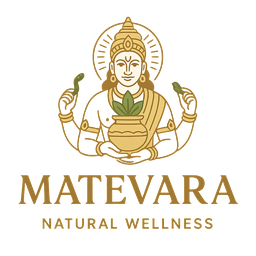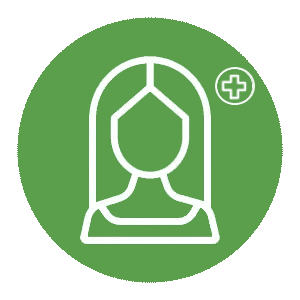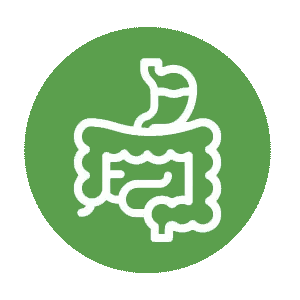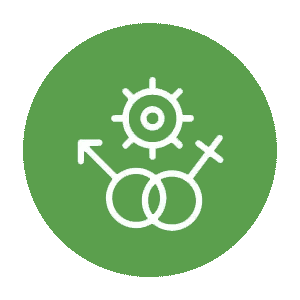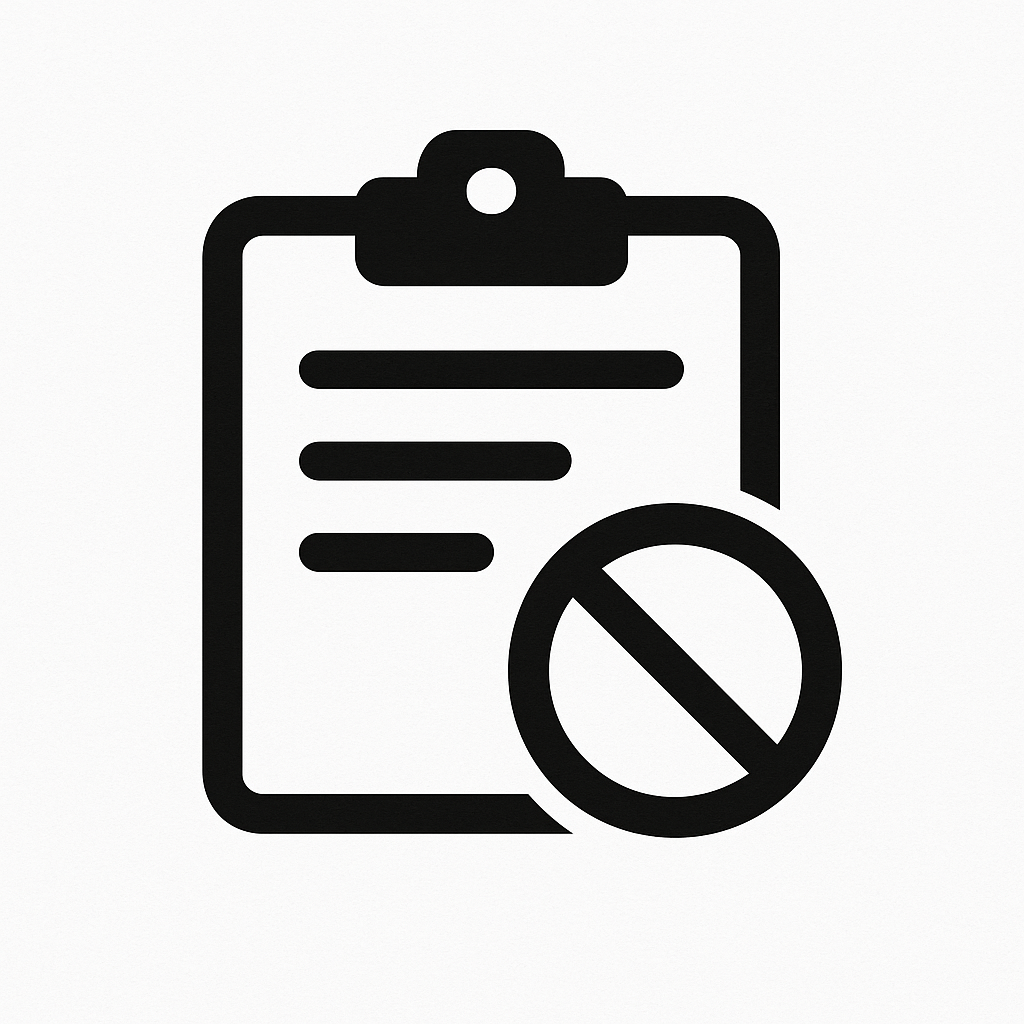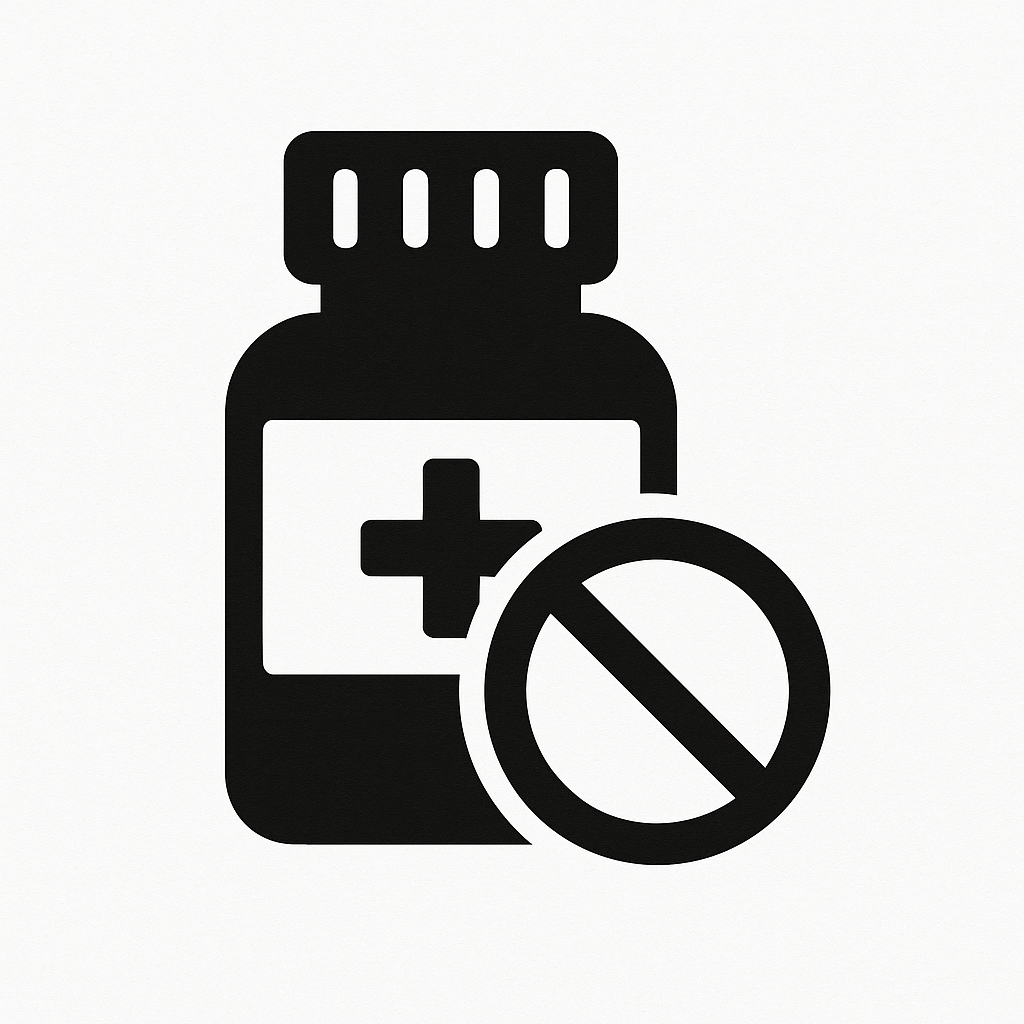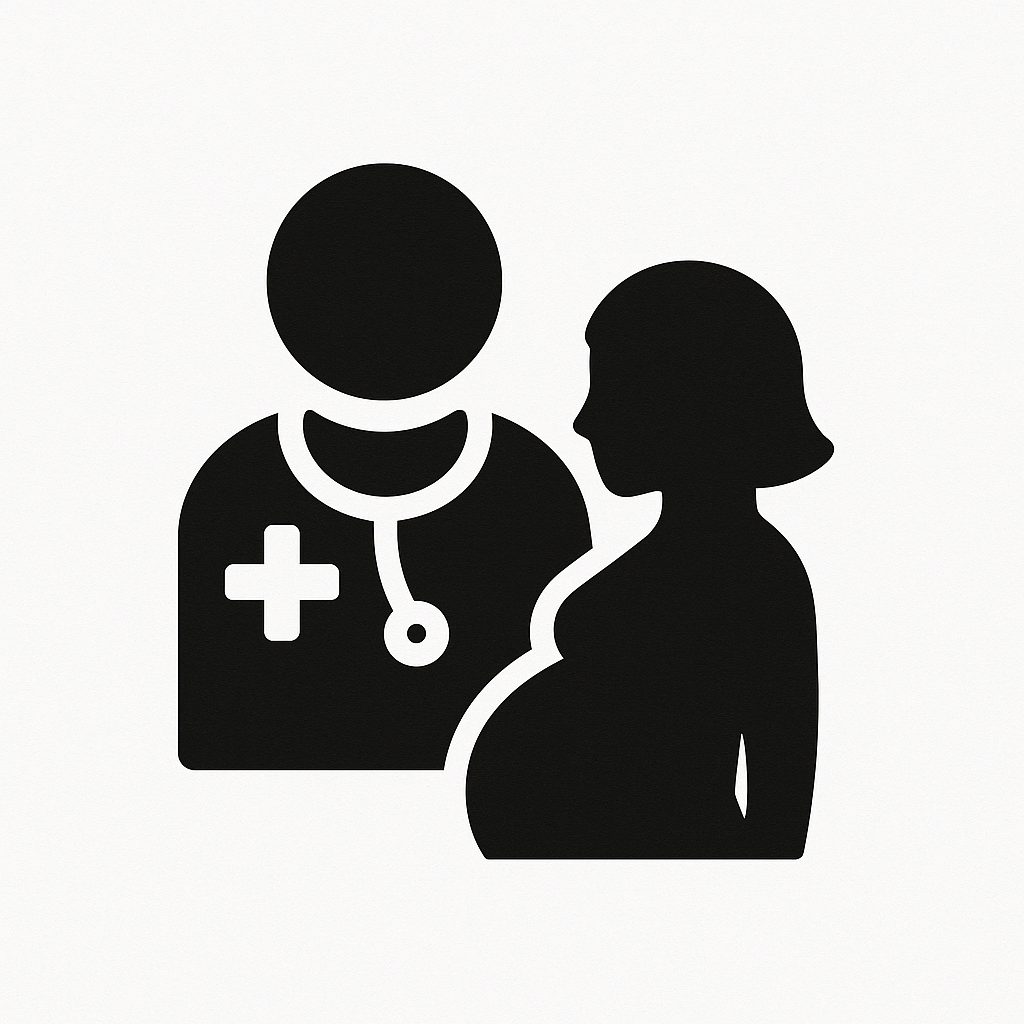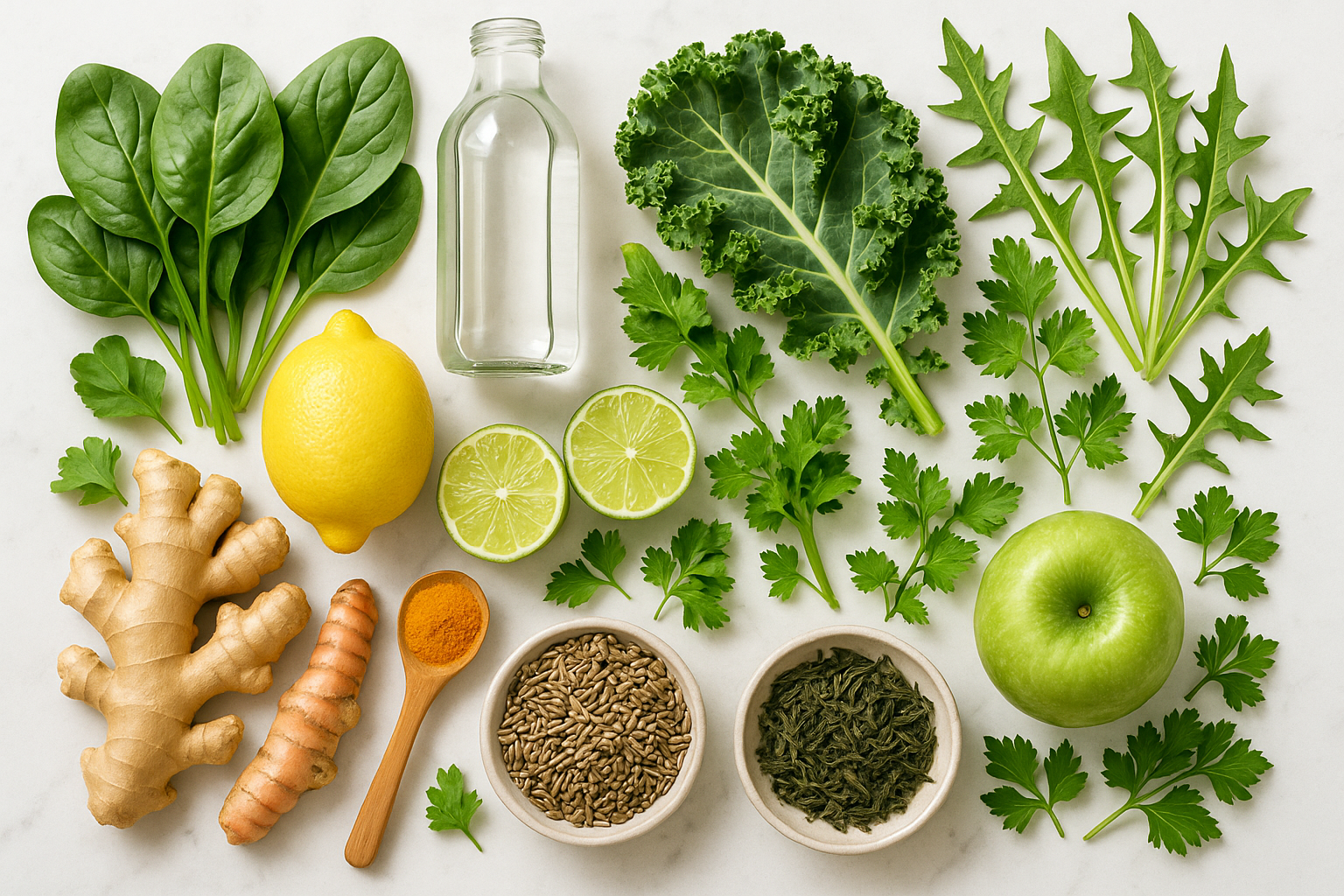
How to Detox Naturally with Effective Supplements
Understanding Real Detoxification
The word "detox" has been hijacked by wellness marketing, often used to sell expensive juices, restrictive diets, and dubious supplements that promise to "flush toxins" and deliver miraculous weight loss in days. The reality is far different—and far more empowering.
Your body is already equipped with an extraordinary detoxification system that includes your liver, kidneys, lungs, digestive tract, skin, and lymphatic system. These organs work continuously to neutralize harmful substances, convert fat-soluble toxins into water-soluble compounds, and eliminate waste products through urine, stool, sweat, and breath.
The question isn't whether your body can detoxify—it absolutely can and does. The question is: Are you supporting these natural processes optimally, or are you inadvertently overburdening them with poor diet, environmental toxins, chronic stress, and nutritional deficiencies?
This is where science-based detoxification support becomes valuable. Rather than extreme cleanses that stress your body, strategic supplementation can enhance your natural detox pathways, protect detoxification organs, and help your body process the unavoidable environmental toxins of modern life.
This comprehensive guide explores evidence-based supplements that genuinely support detoxification, how they work, and how to use them safely for lasting health benefits.
How Your Body Actually Detoxifies
Before diving into supplements, understanding your body's detoxification systems is essential:
Phase I Detoxification (The Liver)
Your liver is your body's primary detoxification organ, processing everything from medications and alcohol to environmental chemicals and metabolic waste products. Phase I detoxification involves cytochrome P450 enzymes that make fat-soluble toxins more reactive through oxidation, reduction, or hydrolysis.
The catch: Phase I reactions produce free radicals and intermediate compounds that can be even more toxic than the original substances if not quickly processed by Phase II.
Phase II Detoxification (The Liver)
Phase II enzymes conjugate (attach molecules to) the reactive compounds from Phase I, making them water-soluble so they can be eliminated through urine or bile. Key Phase II pathways include:
- Glutathione conjugation: The most important pathway, using glutathione (your body's master antioxidant)
- Sulfation: Uses sulfur-containing amino acids
- Glucuronidation: Attaches glucuronic acid to toxins
- Acetylation: Uses acetyl groups
- Methylation: Uses methyl groups from B vitamins and SAMe
- Amino acid conjugation: Uses glycine, taurine, and glutamine
Phase III Detoxification (Elimination)
Phase III involves transport proteins that move conjugated toxins out of cells and into bile (for elimination through stool) or blood (for kidney filtration and elimination through urine).
Supporting Organs
- Kidneys: Filter blood and eliminate water-soluble waste through urine
- Digestive tract: Eliminates waste through bowel movements; gut bacteria help metabolize certain compounds
- Lungs: Exhale volatile compounds and carbon dioxide
- Skin: Eliminates some toxins through sweat
- Lymphatic system: Drains cellular waste and supports immune function
The critical insight: Effective detoxification requires all three phases working in balance. Supporting just Phase I without Phase II can actually increase toxicity. This is why strategic, science-based supplementation matters.
Ten Evidence-Based Supplements for Natural Detoxification
1. Milk Thistle (Silymarin) - The Liver Protector
What It Does: Milk thistle contains silymarin, a group of flavonoid compounds with powerful hepatoprotective (liver-protecting) properties. It's one of the most researched herbs for liver health.
Detox Mechanisms:
- Protects liver cells from toxin-induced damage
- Stimulates protein synthesis to regenerate liver tissue
- Acts as a potent antioxidant, neutralizing free radicals from Phase I detox
- Increases glutathione levels by up to 35%
- Stabilizes cell membranes, preventing toxin penetration
- May enhance Phase II detoxification enzymes
Research Support: Over 400 studies demonstrate milk thistle's effectiveness for various liver conditions. Research shows it protects against alcohol-induced liver damage, reduces liver enzyme elevation (markers of liver stress), and supports recovery from hepatitis. One study found that silymarin improved liver function markers in people with fatty liver disease.
Dosage: 140-420mg of silymarin (standardized extract) daily, divided into 2-3 doses. Look for products standardized to 70-80% silymarin content.
Best For: Anyone with liver stress from alcohol, medications, environmental toxins, or fatty liver disease.
2. N-Acetyl Cysteine (NAC) - The Glutathione Booster
What It Does: NAC is a precursor to glutathione, your body's most important intracellular antioxidant and critical component of Phase II detoxification.
Detox Mechanisms:
- Directly increases glutathione production
- Supports glutathione conjugation pathways
- Acts as a direct antioxidant
- Breaks down mucus (helpful for respiratory detox)
- Protects against acetaminophen (Tylenol) liver toxicity
- Chelates heavy metals like mercury and lead
Research Support: NAC is so effective at supporting liver detoxification that it's the medical antidote for acetaminophen overdose. Studies show it protects against various toxins, reduces oxidative stress markers, and supports liver function. Research also demonstrates benefits for respiratory health, mental health conditions, and addiction recovery.
Dosage: 600-1,800mg daily, divided into 2-3 doses. Take on an empty stomach for best absorption.
Best For: People exposed to environmental toxins, those with liver stress, respiratory issues, or anyone looking to boost glutathione levels.
3. Chlorella - The Heavy Metal Binder
What It Does: Chlorella is a single-celled green algae exceptionally high in chlorophyll and with unique heavy metal binding properties.
Detox Mechanisms:
- Binds to heavy metals (mercury, cadmium, lead) in the digestive tract
- Contains chlorophyll, which supports liver detoxification
- Provides nutrients that support detox enzyme function
- May bind to dioxins and PCBs
- Supports beneficial gut bacteria that aid detoxification
- Helps eliminate toxins already absorbed into tissues
Research Support: Studies show chlorella effectively reduces body burden of heavy metals. One study found it reduced dioxin levels in breast milk by 30%. Japanese research demonstrates it accelerates elimination of methylmercury and cadmium. It's particularly valuable for people with mercury dental fillings or fish consumption.
Dosage: 3-6 grams daily, preferably with meals. Start low and increase gradually to assess tolerance.
Best For: People with known heavy metal exposure, those undergoing dental amalgam removal, or anyone eating large amounts of fish.
4. Activated Charcoal - The Emergency Binder
What It Does: Activated charcoal is highly porous carbon that binds to various toxins, preventing their absorption in the digestive tract.
Detox Mechanisms:
- Binds to toxins, chemicals, and bacterial toxins in the gut
- Prevents absorption of harmful substances
- Reduces bloating and gas by binding to gas-producing compounds
- May bind to mold mycotoxins
- Supports elimination of substances causing digestive distress
Research Support: Activated charcoal is medically used for treating poisonings and drug overdoses. Studies show it effectively binds to numerous toxins, reducing their systemic absorption by up to 75% when taken shortly after exposure.
Dosage: 500-1,000mg as needed for acute exposures or digestive upset. Not for daily long-term use.
Important Caution: Activated charcoal is non-selective—it binds to nutrients, medications, and supplements as well as toxins. Take it at least 2 hours away from food, medications, and other supplements. Don't use long-term without medical supervision.
Best For: Occasional use for food poisoning, exposure to toxins, bloating, or mold exposure. Not a daily detox supplement.
5. Alpha Lipoic Acid (ALA) - The Universal Antioxidant
What It Does: ALA is both water- and fat-soluble, allowing it to work throughout the body—in cells, between cells, and in both aqueous and lipid environments.
Detox Mechanisms:
- Regenerates other antioxidants (vitamins C, E, and glutathione)
- Directly neutralizes free radicals from detoxification
- Chelates heavy metals, particularly mercury
- Supports mitochondrial function in liver cells
- Enhances Phase II detoxification
- Protects against oxidative stress during detox
Research Support: Studies demonstrate ALA's effectiveness for protecting the liver from toxins, chelating heavy metals, and supporting detoxification pathways. Research shows it improves markers of liver function and reduces oxidative stress. It's particularly well-studied for diabetic neuropathy and metabolic health.
Dosage: 300-600mg daily, divided into 2 doses. Take on an empty stomach for best absorption.
Best For: People with liver stress, heavy metal exposure, diabetes, or anyone needing comprehensive antioxidant support during detox.
6. B-Complex Vitamins - The Methylation Supporters
What They Do: B vitamins, particularly B2, B6, B9 (folate), and B12, are essential for methylation—a critical Phase II detoxification pathway.
Detox Mechanisms:
- Support methylation pathways that process hormones, neurotransmitters, and toxins
- Provide cofactors for numerous detox enzymes
- Support glutathione production (B6, folate, B12)
- Enable homocysteine metabolism (prevents toxic buildup)
- Support energy production needed for detoxification
- Protect against toxin-induced DNA damage
Research Support: Studies show that adequate B vitamin status is essential for efficient detoxification. Deficiencies impair Phase II pathways, leading to toxin accumulation. Research demonstrates that B vitamins reduce homocysteine levels, support liver health, and enhance overall detoxification capacity.
Dosage: A high-quality B-complex providing 25-50mg of most B vitamins daily. Look for methylated forms (methylfolate and methylcobalamin) for optimal absorption.
Best For: Everyone—B vitamins are foundational for detoxification. Particularly important for people with MTHFR genetic variants affecting methylation.
7. Magnesium - The Relaxation and Elimination Mineral
What It Does: Magnesium is involved in over 300 enzymatic reactions, including many detoxification processes.
Detox Mechanisms:
- Required cofactor for Phase I and II liver enzymes
- Supports glutathione synthesis
- Promotes bowel regularity for toxin elimination
- Reduces stress hormones that impair detoxification
- Supports kidney function and filtration
- Protects against heavy metal toxicity
- Enhances mitochondrial function
Research Support: Studies show magnesium deficiency impairs detoxification capacity. Adequate magnesium supports efficient toxin processing and elimination. Research demonstrates it protects against various toxins, supports liver health, and is essential for Phase II detoxification pathways.
Dosage: 300-500mg daily from chelated forms (glycinate, citrate, malate). Citrate is particularly helpful for constipation.
Best For: Most people are deficient—magnesium supports detoxification, stress management, sleep, and elimination.
8. Probiotics - The Gut Detoxifiers
What They Do: Beneficial gut bacteria play crucial roles in detoxification, including metabolizing certain toxins, supporting liver function, and maintaining gut barrier integrity.
Detox Mechanisms:
- Metabolize and neutralize certain toxins and carcinogens
- Support the gut-liver axis for optimal detoxification
- Produce short-chain fatty acids that protect gut lining
- Prevent leaky gut (which allows toxins into bloodstream)
- Support immune function for pathogen elimination
- Reduce inflammation that impairs detoxification
- Enhance elimination through regular bowel movements
Research Support: Studies show that gut microbiome composition significantly affects detoxification capacity. Beneficial bacteria help process and eliminate toxins, while dysbiosis (bacterial imbalance) impairs detoxification and increases toxic burden. Research demonstrates that probiotics reduce markers of toxicity and support liver health.
Dosage: 10-50 billion CFU daily of multi-strain formulas containing Lactobacillus and Bifidobacterium species.
Best For: Everyone—a healthy gut microbiome is foundational for detoxification and overall health.
9. Dandelion Root - The Gentle Liver and Kidney Tonic
What It Does: Dandelion has been used traditionally for liver and kidney support, with modern research confirming various benefits.
Detox Mechanisms:
- Increases bile production and flow (essential for toxin elimination)
- Supports liver cell regeneration
- Acts as a gentle diuretic, supporting kidney function
- Provides antioxidant protection during detoxification
- Contains compounds that may enhance Phase II detoxification
- Supports digestive function and elimination
Research Support: Animal studies show dandelion protects liver cells from toxins and oxidative stress. Research demonstrates it increases bile production, supports antioxidant defenses, and exhibits anti-inflammatory properties. Human studies are limited but promising.
Dosage: 500-2,000mg daily of dried root extract, or 1-2 cups of dandelion root tea.
Best For: Gentle, ongoing liver and digestive support. Safe for long-term use.
10. Selenium - The Glutathione Protector
What It Does: Selenium is an essential trace mineral and critical cofactor for glutathione peroxidase, an enzyme that protects glutathione and enhances its detoxification functions.
Detox Mechanisms:
- Essential for glutathione peroxidase enzyme function
- Protects cells from oxidative damage during detoxification
- Supports thyroid function (which affects metabolism and detox)
- Binds to mercury, potentially reducing its toxicity
- Supports immune function during detox
- Protects liver cells from damage
Research Support: Studies demonstrate selenium's importance for detoxification enzyme function. Deficiency impairs glutathione activity and increases susceptibility to toxins. Research shows selenium supplementation protects against heavy metals, supports liver health, and enhances overall detoxification capacity.
Dosage: 100-200mcg daily. More is not better—excessive selenium is toxic.
Best For: People with low selenium intake (common in areas with selenium-poor soil), those with heavy metal exposure, or anyone supporting glutathione function.
Creating an Effective Detox Protocol
Phase 1: Foundation (Weeks 1-2)
Start with foundational support before adding more intensive detox supplements:
- Hydration: 8-10 glasses of filtered water daily
- Fiber: 25-35g daily from vegetables, fruits, and psyllium husk
- Magnesium: 300-400mg daily
- B-Complex: High-quality methylated B vitamins
- Probiotics: 10-25 billion CFU daily
Focus on: Establishing regular elimination, supporting gut health, and providing basic nutrient cofactors.
Phase 2: Active Detox Support (Weeks 3-6)
Add targeted detox supplements:
- Milk Thistle: 280mg silymarin twice daily with meals
- NAC: 600mg twice daily on empty stomach
- Chlorella: Start with 1g daily, increase to 3-5g
- Alpha Lipoic Acid: 300mg twice daily
- Selenium: 100-200mcg daily
Continue foundational support throughout.
Focus on: Supporting liver Phase I and II detoxification, increasing glutathione, beginning gentle chelation.
Phase 3: Maintenance (Ongoing)
After the intensive phase, maintain with:
- Rotating liver support: Milk thistle or dandelion (2-3 weeks per month)
- Ongoing foundation: Magnesium, B vitamins, probiotics
- Periodic cleansing: Chlorella or activated charcoal as needed
- Antioxidant support: NAC or ALA several times weekly
Focus on: Supporting natural detoxification without constant supplementation.
Lifestyle Practices That Enhance Detoxification
Supplements work best when combined with lifestyle practices that support natural detox:
Dietary Strategies:
- Eat cruciferous vegetables (broccoli, cauliflower, Brussels sprouts) that support Phase II detox
- Include sulfur-rich foods (garlic, onions, eggs) for glutathione production
- Consume adequate protein for amino acid conjugation pathways
- Eat organic when possible to reduce pesticide exposure
- Avoid alcohol, processed foods, and excess sugar that burden detox organs
Physical Practices:
- Exercise regularly to promote lymphatic drainage and sweating
- Practice dry brushing before showering
- Use infrared sauna 2-3 times weekly
- Get adequate sleep (7-9 hours) when detoxification peaks
- Stay hydrated throughout the day
Stress Management:
- Chronic stress impairs detoxification—practice meditation, yoga, or deep breathing
- Spend time in nature
- Maintain healthy relationships and social connections
Environmental Strategies:
- Use air purifiers to reduce indoor toxin exposure
- Choose natural personal care and cleaning products
- Filter drinking water
- Minimize plastic use, especially for food storage
- Avoid unnecessary medication and supplement overload
What to Expect During Detoxification
Initial Reactions (Days 1-5): Some people experience temporary symptoms as their body mobilizes and eliminates stored toxins:
- Headaches
- Fatigue
- Digestive changes
- Skin breakouts
- Mood changes
- Increased urination or bowel movements
These are often called "detox reactions" or Herxheimer reactions. While uncomfortable, they typically indicate your body is actively eliminating toxins.
How to Minimize Discomfort:
- Start with lower supplement doses and increase gradually
- Ensure adequate hydration and fiber for elimination
- Support bowel regularity (toxins must exit efficiently)
- Get extra rest
- Reduce intensity if symptoms become severe
- Consider slowing down if reactions are intense
Mid-Protocol (Weeks 2-4):
- Increased energy and mental clarity
- Improved digestion
- Better sleep quality
- Reduced inflammation and joint pain
- Clearer skin
- Stable mood
Long-Term Benefits (Weeks 6+):
- Sustained energy without crashes
- Enhanced immune function
- Improved metabolic health
- Better hormone balance
- Reduced allergies and sensitivities
- Overall sense of vitality and wellbeing
Safety Considerations and Contraindications
Who Should Avoid or Modify Detox Protocols:
- Pregnant or breastfeeding women: Avoid aggressive detox as mobilized toxins can affect the baby
- People with kidney disease: Some supplements increase kidney workload
- Those on multiple medications: Detox supplements can interact with drugs
- Children: Require modified protocols under professional guidance
- People with severe chronic illness: Need medical supervision
Important Warnings:
- Never do aggressive detox while taking chemotherapy or immunosuppressants
- Avoid activated charcoal within 2 hours of medications or supplements
- High-dose chelators can mobilize more toxins than your body can eliminate—work with a professional
- Some people have genetic variants affecting detoxification—personalized approaches work best
- If you have mercury amalgam fillings, don't use chelators without dental work completion
When to Seek Professional Guidance:
- If you have known heavy metal toxicity
- When experiencing severe detox reactions
- If you have liver or kidney disease
- When taking multiple medications
- If symptoms worsen rather than improve
- For personalized detox protocols based on testing
The Truth About Common Detox Myths
Myth 1: "You need to detox because your body is full of toxins" Truth: Your body detoxifies continuously. The question is whether it's working optimally.
Myth 2: "Detox teas and juices cleanse your system in days" Truth: No product "cleanses" anything. At best, they provide nutrients; at worst, they cause diarrhea mistaken for "detox."
Myth 3: "Detoxing will make you lose weight permanently" Truth: Any weight loss from detox protocols is primarily water and waste, not fat. Sustainable weight loss requires long-term lifestyle changes.
Myth 4: "Everyone needs intense detox protocols" Truth: Most people benefit from supporting natural detoxification, not aggressive "cleansing."
Myth 5: "Detox supplements alone are sufficient" Truth: Supplements support processes that require a strong dietary and lifestyle foundation.
Take Control of Your Body's Natural Detoxification
Your body is remarkably equipped to handle the detoxification demands of daily life—when properly supported. Rather than falling for extreme cleanses or unproven detox gimmicks, focus on evidence-based strategies that enhance your liver, kidneys, and cellular detoxification pathways.
Quality supplements like milk thistle, NAC, chlorella, and others provide genuine support for your body's natural processes. Combined with a nutrient-dense diet, adequate hydration, regular movement, quality sleep, and stress management, these tools empower your body to do what it does best—protect you from harm and maintain optimal function.
Ready to support your body's natural detoxification with science-backed supplements? Explore comprehensive detoxification formulas and liver support products at Matevara's Detox Collection. Discover high-quality supplements designed to enhance your body's natural cleansing processes, support liver health, and promote overall vitality.
Your body works hard to protect you every day. Give it the support it deserves.
Disclaimer: This article is for informational purposes only and does not constitute medical advice. Detoxification supplements are not intended to diagnose, treat, cure, or prevent any disease. Always consult with a qualified healthcare provider before starting any detox protocol, especially if you have existing health conditions, take medications, are pregnant or breastfeeding, or have liver or kidney disease. Individual needs and responses vary significantly. Some supplements may interact with medications or be contraindicated in certain health conditions. Severe or persistent symptoms during detoxification warrant medical evaluation.
Share
